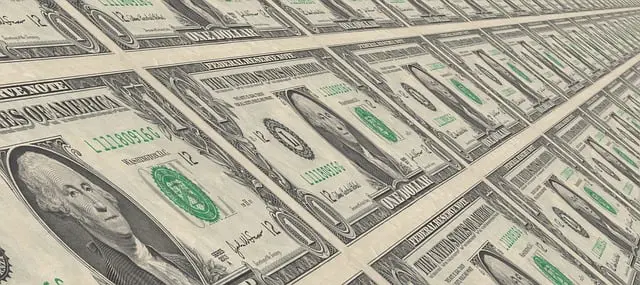As a result of multiple upheavals, the US’ unchallenged unipolar supremacy and the dollar’s primacy as the world’s reserve currency are under pressure.
Due to the dollar’s reserve currency status, there is a virtually endless demand for it, allowing US companies to borrow money internationally.
Approximately 88% of world trade in 2022 will be conducted in dollars, according to a study by the Bank for International Settlements. Therefore, countries around the world must hold the dollar in order to be able to buy from international markets. This creates a demand for dollars, creating a continuous cycle.
The dollar’s reserve currency status also helps the US remain a superpower economically and politically.
It is becoming increasingly attractive to de-dollarize
US sanctions and monetary policy decisions that exported inflation to other countries, among other things, have led to increasing calls for de-dollarisation in several countries around the world, most of which aren’t allied to the US, as a result of the use of the dollar’s reserve currency status to wage an economic war.
According to economist Peter C Earle in a piece for the American Institute for Economic Research, the dollar’s fate as a world trade lingua franca may already be sealed by weaponizing dollar dominance and permitting expanding mandates to disorient US monetary policy.
China, Russia, and Iran are among the countries that have taken action against the dollar. Although the latter two have done so as a result of sanctions imposed on the US and its allies, China’s actions are more nuanced and motivated by the desire to dethrone the US as the world’s superpower.
Recently, India, Saudi Arabia, Brazil, and even Malaysia have joined the bandwagon.
After India implemented its new foreign trade policy in April, 18 countries, including the UK, Germany, Singapore and others, agreed to settle trade in rupees.
Brazil’s president Lula has urged BRICS countries – a group that includes Brazil, Russia, India, China, and South Africa – to trade in local currencies instead of dollars.
“Why shouldn’t the BRICS bank have a currency to finance trade between Brazil and China, between Brazil and all the other BRICS countries?” Lula asked during his visit to the Shanghai-based New Development Bank last Thursday, challenging the dollar’s hegemony and calling its role in the global economy ‘outsized’.
As a result of Russia being banned from the SWIFT payment system, the yuan has replaced the dollar as the most traded currency.
The journey of dollar is long
Even so, de-dollarization has been a topic of discussion for decades. Although there has always been a desire for a stable, politically neutral currency, it has never materialized, and the dollar has remained the world’s reserve currency in spite of several hiccups.
The dollar will continue to lose ground abroad for as long as the political will to moor US fiscal and monetary policies to those consistent with sound money is unconversable.
Because of the pervasiveness of the dollar in global trade and the network effects it produces, completing that journey could take a long, long time. Only 31% of international transactions were denominated in euro, and only 7% were denominated in yuan, while 88% were dollar-denominated.
A Deutsche Bank analysis indicates that the dollar’s status is under threat on multiple fronts. One of the biggest weapons in the arsenal of countries looking to reduce their dependency on the dollar is the use of local currencies as a medium of exchange between two countries.
It is also crucial to reduce dependence on dollars by reducing private sector flows – at the end of 2022, the euro accounted for 31% of all flows, while the dollar accounted for 47%. In the past 20 years, the dollar’s share has fallen by 5 percentage points.
The consensus among economists, however, is that de-dollarization will be a long and uncertain process.
According to Deutsche Bank analyst Alan Ruskin, the USD will likely remain the dominant reserve currency for decades to come.
Until the dollar is dethroned or a new reserve currency is created – sometimes referred to as Bretton Woods III – the dollar remains the king
See Also:
- Pfizer Acquires Seagen: What Does This Multibillion-Dollar Deal Mean for the Biotech Industry?
- Rupee at risk from dollar gains, Experts predict it could slip to 82 as Dollar strengthens
- How this Youtube channel becomes a billion dollar company – India’s first profitable unicorn startup
- The Ultimate Revelation Of US Dollar Goes Down To 1-week Low As Investors Are Optimistic About Global Outlook

1 Comment